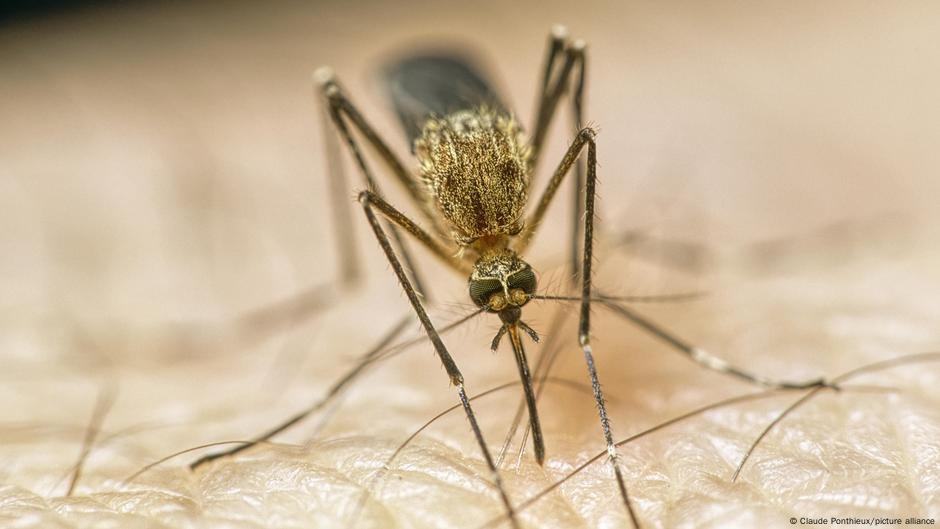How climate change harms health and what helps

Heart attacks, heatstroke, insomnia, mental health problems, and an increase in tropical diseases: The climate crisis is threatening the health of an increasing number of people worldwide. According to scientific estimates, an average of over half a million people die each year from the direct or indirect consequences of extreme weather.
The consequences of global warming, such as extreme heat waves, droughts, and other extreme weather events, have never been more threatening. This is what the 128 authors of the Lancet Countdown Report published today write.
The report is considered a renowned benchmark for the scientific relationship between global warming and health.
These are becoming more severe due to climate change, which is mainly caused by greenhouse gases from the burning of coal , oil and gas.

More than two million people die each year as a result of the climate crisis, including deaths from air pollution. African countries, Southeast Asia, and Latin America are particularly affected, the authors say.
"There are millions of deaths every year: because we continue to depend on fossil fuels, because we delay mitigating climate change, and because we are slow to adapt to climate change, which is inevitable," said Marina Romanello, executive director of the Lancet Countdown research collaboration and professor at the Institute for Global Health at University College London.
The result: Increasingly, heatwaves overheat the body, strain the heart and kidneys, and rob us of sleep. Heavy rain and floods contaminate drinking water and promote infections. Droughts and the resulting crop failures exacerbate hunger worldwide and lead to malnutrition and hygiene risks. Smoke and dust from forest fires damage lungs, hearts, and unborn children in the womb. This also includes power outages after disasters, destroyed hospitals, and disrupted supply chains, which complicate supply in critical situations.
The authors of the study write that 13 of a total of 20 indicators of health risks have increased significantly in the past year.
"What is most worrying is that the trend for almost all indicators is going in the wrong direction," Romanello continued.

Water or food shortages, catastrophic sanitation conditions caused by droughts, floods, or extreme heat cost human lives and hundreds of billions of US dollars annually. The damages from loss of work due to illness and absenteeism will total more than one trillion dollars by 2024 – from extreme heat alone. This represents approximately one percent of total global economic output.
In addition, extreme weather events caused economic damage of $304 billion in 2024 – an increase of almost 60 percent within ten years.
According to Romanello, most of those affected worldwide are uninsured, making the consequences for those affected even more dramatic.

As temperatures rise, mosquitoes, ticks and sand flies also spread to other regions.
Last week, mosquitoes were documented for the first time ever on the northern European island of Iceland. Scientists say this is a clear sign of climate change. Warmer temperatures are opening up new habitats for insects that can transmit serious or fatal diseases and parasites. As a result, the number of infections with dengue fever, malaria, leishmaniasis, and other diseases is increasing worldwide.
In 2024, there was a record number of dengue infections worldwide, more than 7.6 million cases.
Those infected are often unable to work for many weeks, with significant economic consequences. "We know that climate change is contributing to at least some of this spread," Romanello says.
This would also mean that monitoring would have to be tightened and care would have to be adapted accordingly.

Jenni Miller of the US-based non-governmental organization Global Climate & Health also points to the psychological consequences of global warming. "When someone experiences an extreme weather event, be it a wildfire, a severe hurricane, monsoon, typhoon, or severe flooding, it can lead to post-traumatic stress disorder."
According to the study, climate change also increases the risk of mental illness.
When harvests become scarce after droughts and clean water is lacking, or people are unable to work because of tropical diseases, this often leads to stress, anxiety, and mental health problems. And increasing sleep deprivation due to persistent heatwaves can exacerbate health problems, the report states.

To mitigate the health consequences of the climate crisis, the authors call for three key measures: First, renewable energies must be expanded to slow global warming. The expansion of green energy and the resulting reduction in air pollution have already prevented over 160,000 deaths, according to Romello.
Second, measures to adapt to climate change must now be taken quickly. This includes making residential buildings and public infrastructure fit for extreme situations. This could partially mitigate the direct consequences and dangers for people.
Third, global health systems urgently need to be adapted and appropriately equipped to meet the increasing challenges posed by global warming.
dw





